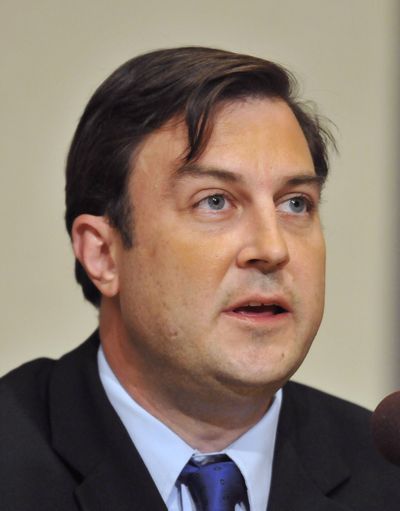Stuckart wants council pre-approval on surveillance gear

Before they’ve even taken to Spokane’s skies, Spokane City Council President Ben Stuckart wants to send drones a message: We’re watching you.
An ordinance written by Stuckart would require City Council approval before any department purchases “certain surveillance equipment” such as unmanned drones. The ordinance would also require departments to establish protocols for the use of the equipment, as well as how data collected from the equipment would be stored and accessed.
The council is scheduled to debate and vote on the issue July 29.
“I’d like to pass (the ordinance) now in Spokane, preventively, before it becomes an issue,” Stuckart told the city’s Community Assembly last week. He’d previously discussed the issue with the Public Safety Committee. “I’d just like to have a public dialogue and have the City Council approve it before the police department, or any other department, starts using technology like that.”
Though the ordinance mentions drones in passing, it primarily focuses on a broader definition of “surveillance equipment.”
“I didn’t limit it to just drones,” Stuckart said Thursday. “I wrote it generically enough so if there’s technology that we don’t even know about yet, it will also cover that.”
Despite the ubiquity of surveillance technology in American life, from red-light cameras to “cookies” tracking our Internet behavior, domestic drone use has become a hot topic.
In February, the Seattle Police Department said it would return to the manufacturer two drones it bought with federal funding after Mayor Mike McGinn answered public outcry with a proposed law restricting their use. Stuckart said he based his ordinance on the Seattle law.
Most recently, in March, U.S. Sen. Rand Paul, R-Ky., mounted a 13-hour filibuster against the use of drone strikes in America, eventually winning a concession from the Obama administration stating they would not order lethal force against an American on U.S. soil by drones.
Spokane police Chief Frank Straub said he has no current plans to purchase drones for police work, but he added that the unmanned technology could be beneficial in the near future.
“My prediction is in five years, drones will be pretty commonplace,” he said. “A drone isn’t going to do anything a helicopter can’t,” primarily functioning as “eyes in the sky” or in search-and-rescue efforts.
He noted that drones in Spokane will have “no poison darts or missiles.”
The upside of a drone is its cost, Straub said. Unlike a helicopter, which entails purchasing and maintaining the aircraft, fuel and pilot certification, a drone is remotely operated and small.
“If a drone falls out of the sky, no big deal,” Straub said. “But if a helicopter falls out of the sky, well …”
Tim Burns, Spokane’s civilian police ombudsman, said he was supportive of Stuckart’s ordinance, though he agreed “there’s value in drones being used by municipalities.”
“I think a lot of people equate drones with Big Brother,” Burns said. “But in my experience, if you walk into virtually any store, you’re going to be on camera.”
Burns said he sympathized with privacy concerns, which is why he’s appreciative of Stuckart requiring public involvement every time a drone is purchased for use by the city.
“We didn’t get to the idea of body cameras (on police officers) without a community conversation,” Burns said.
Body cameras are specifically excluded from the definition of “surveillance equipment” in the ordinance, as are cameras installed on patrol cars and other city vehicles, in rights of way and inside or around public facilities.
Research done by the Police Department concerning body cameras, Burns said, could be very helpful in deciding how data gathered by drones would be used: its storage, accessibility through public records requests, and even its use in court as evidence.
Straub had his own thoughts on the connection between body cameras and drones.
“Everybody’s worked up about videotaping everything, but then they want our officers to wear body cameras,” he said.